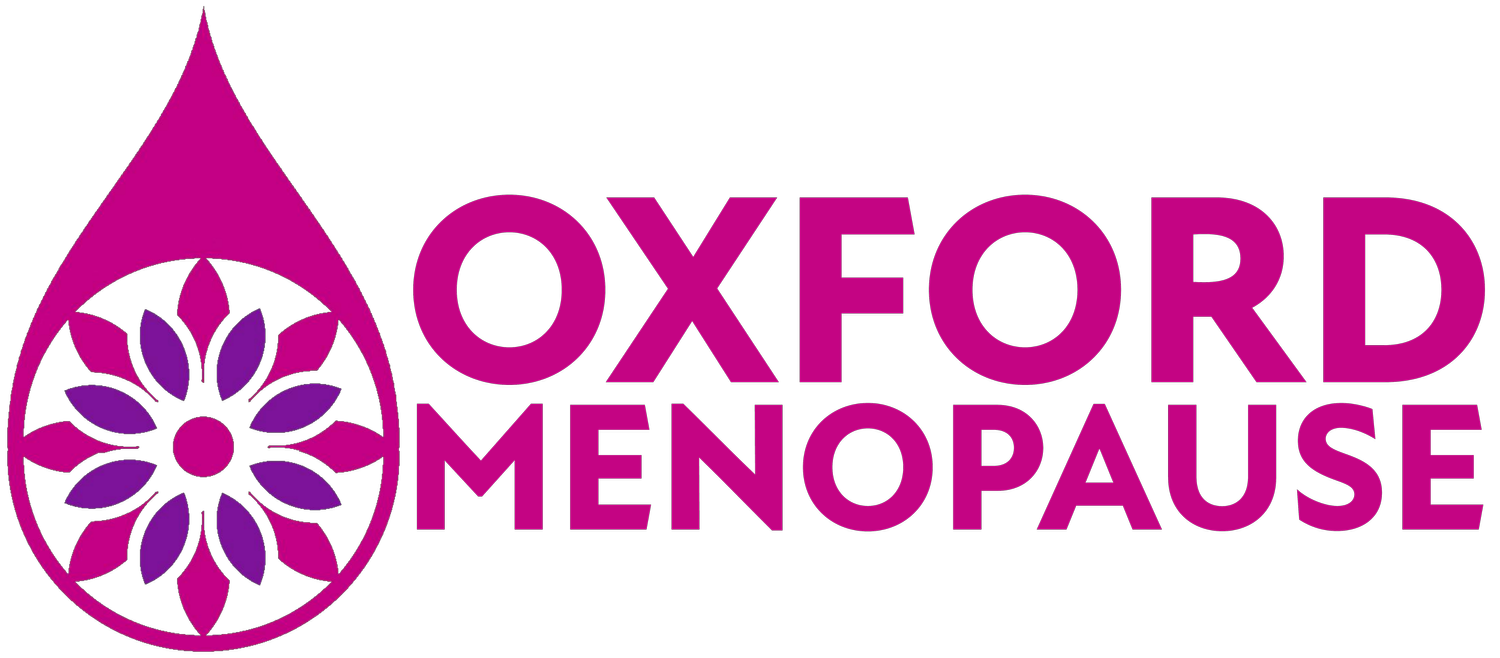Our first newsletter
Welcome to the first Oxford Menopause newsletter.
I’d like to share news, tips and useful information about the menopause, lifestyle and treatment options on a regular basis. Menopause is so much more than HRT and it’s really important we look at different aspects of our lifestyle when optimising our health at the menopause.
What is the menopause?
The menopause refers to the time in every woman’s life when their ovaries lose their reproductive function and periods stop. For the majority of women this happens some time between the ages of 45 and 55. For some women this happens slightly earlier (between 40 and 45) and in a very small proportion of women before the age of 40. If your menopause happens before the age of 40, it is referred to as premature ovarian insufficiency or premature menopause. It is really important that women are able to access the right help and treatment options whenever their menopause begins, but it is particularly important for those experiencing an early menopause.
At the menopause hormone levels change, in particular oestrogen which is mainly produced by the ovaries. For most women oestrogen levels gradually decline, in some women this can take many years, and is known as the ‘perimenopause’.
The menopause is a different experience for every woman, symptoms vary in duration, severity and the impact they have on a woman. Symptoms can include:
– hot flushes
– night sweats
– insomnia
– fatigue
– poor concentration / ‘brain fog’
– mood changes
– vaginal dryness and soreness
– low libido
– joint pains
– and many more!
In addition to these more obvious issues, bone strength and density is affected by falling oestrogen levels, this can lead to osteoporosis or ‘crumbly bones’ with an increased risk of fracture.
What can I do about my menopause?
There are a variety of options to help you manage your menopause.
Lifestyle changes
Ensuring a healthy diet, maintaining a normal body mass index (BMI-18.5-25), avoiding excess alcohol, not smoking and undertaking regular weight-bearing exercise all have positive health benefits in general but can help in managing hot flushes/sweats and ensure bone density is optimised. It’s also important to ensure you have calcium and vitamin D in your diet to protect your bone density.
The recommended daily intake of calcium for postmenopausal women is 1000 mg and for vitamin D is 1000 IU a day.
Calcium
You can easily obtain 1000mg of calcium through a healthy, varied, calcium rich diet.
Cereal with milk = 155mg
Tea/coffee with milk = 45mg
Yogurt = 100mg,
Portion of cheese = 320mg
Sardines or pilchards = 350mg
Serving of lasagne = 225mg
Macaroni cheese/pizza = 225mg
Vitamin D
Vitamin D can be found in abundance in oily fish such as salmon, mackerel, sardines, red meat, liver, egg yolks and some breakfast cereals.
You may like to consider using a vitamin D supplement to augment your vitamin D intake, these are available from most pharmacies or health food shops.
Complementary and alternative therapies
There are various non-hormonal therapies available, often with a plant oestrogen base, while these are popular and helpful for many women, there is limited data to support their efficacy and safety. Acupuncture, aromatherapy, herbal treatments, homeopathy, hypnotherapy, yoga and reflexology have all been reported as being helpful in the menopause. There are also prescribed therapies such as certain antidepressants and other medication that can help women with some of their menopausal symptoms, particularly for women who are advised not to take HRT.
Hormone replacement therapy
Hormone replacement therapy (HRT) is widely used and very effective at controlling the majority of menopausal symptoms. It simply replaces the oestrogen women lose at the menopause and is usually very well tolerated. In addition some women may require testosterone therapy alongside HRT. There are many different HRT options available and it can be quite confusing, so it is important that every woman has the correct advice and information to make the right choice.
How can I get help?
Oxford Menopause offers a bespoke, individualised approach to every woman’s menopause, exploring their issues and providing an evidence-based discussion about how these can be managed effectively. Different treatment options are reviewed and women are allowed time to discuss any queries or concerns they have in a safe, confidential environment, ensuring they are well-informed about their menopause and any treatment they wish to consider.
To find out more or book an appointment with Dr Katie Barber call 07515 560870 or email enquiries@oxfordmenopause.com.
Get in touch today to find out more and book your first appointment!
